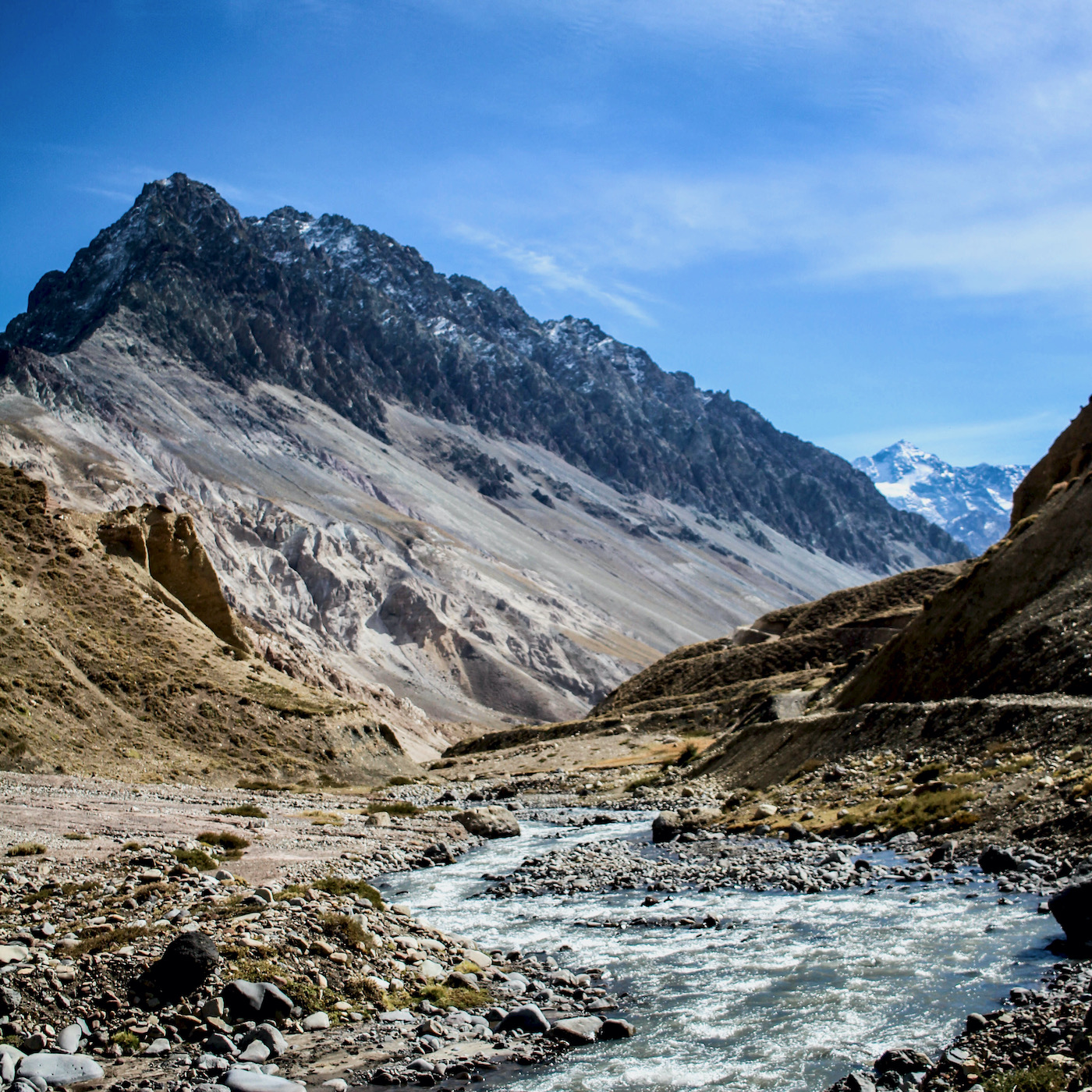 Rio Colina. Photo: Paulo Urrutia
Rio Colina. Photo: Paulo Urrutia Chile's narrow geography has blessed it with a rather unique privilege compared to other countries: the almost absolute sovereignty of its river basins. With a few limited exceptions, the State and the Chilean people have the power to decide what happens to each national river, from its source in the Andes Mountains all the way to its mouth in the Pacific Ocean. This is different to what happens, for example, with the Amazon River, whose tributary runs through seven countries; or in Europe with the Danube, which supplies water to ten.
Therefore, it could be assumed that, given this logistical and strategic advantage, our country has some leadership in the management and handling of its rivers. Leadership that would translate into a guarantee of optimal water quality and its proper management, which would satisfy the needs of various sectors (including the ecosystem) in all of the national territories.
Unfortunately, the reality is quite different. There are more and more lawsuits that are raised around some river basins, as well as citizens concerned about the lack of protection that the waters receive. Waters that not only support the lives of thousands of people, but also millions of species. There are multiple abuses carried out across Chile’s river basins: from overexploitation, which results in severe water deficit as a consequence (as in Petorca), or severe pollution (as in the Loa River); or plans for a hydroelectric plant that threatens to destroy indigenous sacred ceremonial spaces (such as the Pilmaiken River) or cause irreparable damage to the surrounding ecosystems (such as the HidroAysén Project), and the list goes on until it reaches the Maipo River.

The case of Maipo is extremely relevant because its tributary provides water to about half of the country's population. Not only to all the localities grouped in the areas known as the Maipo Canyon and Santiago de Chile, but also cities such as Melipilla, Llolleo and Santo Domingo; and even to others that are much further from the basin, for example the entire central coastline. This river, that so many rely on, is also located in an area in increasing desertification, which is why achieving a proper management and care of its waters is so urgent that it has become a matter of national security.
With this concern and a desire to contribute taking root, the book Humanidad de las Cuencas: Usos y Abusos - Rio Maipo (Humanity in the Basins: Uses and Abuses - Maipo River) was published by Chilean environmental group Ecosistemas. It is a two-year investigation and bibliographic compilation, carried out by Juan Pablo Orrego, an ecologist, and Paulo Urrutia, a geologist, which aims to organize the existing information on the Maipo basin, taking us on a historical journey of our relationship with this territory, explaining its current state and proposing nature-based actions, which involve holistic and interdisciplinary management, considering the basin as a geographic, ecosystem and socio-environmental framework.
The result is, therefore, a very comprehensive and panoramic book. It begins by portraying the historical succession of human settlements on the banks of the Maipo (since its beginnings in the Paleoindian Period), continuing with a characterisation of the basin’s geological aspects and biodiversity, before going on to measure the uses (and abuses) that have occurred and are still occurring, moving on to talk about the quality of the water, the legislation around it, the effects of climate change, latent socio-environmental conflicts; and finally, it make a series of proposals for an integrated, efficient and respectful management of the basin.
 Volcan San Jose. Photo: Paulo Urrutia
Volcan San Jose. Photo: Paulo Urrutia
An obstacle that attracted attention during the preparation of this book “was not the lack of information but the excess of it. There were many studies by different organizations and institutions, however they had quite dissimilar and even contradictory information. And it is really sad and harmful, that the knowledge of our territory tends to be produced by environmental impact studies, which as their name indicates, are already seeking to have an impact”, says Paulo.
This scattered information has functioned, in some way, as a veil, which has hindered the global understanding of what is happening in the basin, considering, for example, the cumulative impact of the various “development” projects. What is clear is that this magnificent basin, so strategic for Chile, which has natural, paleontological, historical and cultural attributes, is in a poor condition today, due to the brutal interventions of: hydroelectric plants, aggregate extractors, agribusiness, agriculture and rampant urbanization. And it is essential to bravely tackle this problem head on, in order to ensure the survival of the river and its ecosystem services for current and future generations.
Lack of awareness causes devaluation and this leads to aggression and abuse. Despite technology advancements and the development of sectors that need water to thrive (or perhaps because of it), Chile has not yet been able to create an integrated management of its basins, which would safeguard the future of Chilean men and women and all our natural heritage. An extractivist viewpoint which denounces all our common goods as "natural resources" demonstrates a primitive model of development, which, nevertheless, still has time to be updated. Humanidad de las Cuencas: Usos y Abusos: Cuenca del Maipo is a call for constructive, conscious and active criticism from all sectors: from academia to civil society, from the public sector to the private sector. It is serious and far-sighted work, available for download on the NGO Ecosistemas website. We invite you to read it.





.gif)



